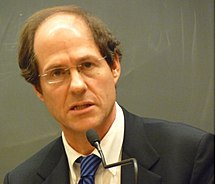 |
The central business district in Minneapolis has an extensive indoor skyway system.
Photo Credit: Tech{dot}MN
|
Maybe. Isolating the total effect of weather on individual well-being is tricky to the point of being impossible. There are simply too many location-specific factors (cost of living, social and cultural opportunities, economic strength/wage levels, aesthetics, history, style etc.) that drown out any clear causal links. Psychological adaptability means that most people's happiness levels will quickly regress to roughly the same place following a big change in weather. Add to that the huge selection effects involved with people's decisions about where to live (i.e. finding a good "fit"), and it's pretty clear this is a minor and unimportant realm of social inquiry.
Nevertheless, a nagging intuition prevents me from fully accepting weather's irrelevance. Being outdoors has tremendous utility. We use the outdoors to exercise, socialize (most public space is outside), and move between indoor locations, to name a few uses. It seems self-evident that good weather increases the quantity of outdoor activity compared to bad weather. More specifically, good weather reduces the personal cost of doing stuff outside. Now, for die-hard year-round bicyclists, this doesn't matter too much. But on the margin, small changes in the costs of outdoor activities might reduce them below critical decisionmaking thresholds for some people, resulting in some higher amount of total outdoor activity.
If you consider health and outdoor activity to have some intrinsic worth (as opposed merely being instrumental in achieving personal happiness or life satisfaction), then areas with more good weather are indeed better off, however slightly. But in a different sense, good weather also increases personal freedom. Bad weather prevents us from doing things we want to do (would-be hikers are freed from the psychological torment of braving the cold, for example). Good weather increases our capability to achieve the functionings in life that we desire (exercise, stay up late without getting tired, etc.). Broadening the scope a bit, good weather probably has a disproportionately large affect on animal-welfare (the share of mistreated and unhealthy dogs almost certainly spikes in winter months).
Technology and infrastructure surely mitigate some of these effects (heated buildings, thermal underwear, etc.), but access to these offsets is itself a source of inequality and unfreedom. Vacation habits and patterns of homeless and elderly populations living in sunny areas bear this out. Additionally, the costs involved with bad-weather mitigation strategies are not trivial.
So later this summer, once your psychology has adapted and the good-weather euphoria has worn off, remember that in some very minor way, you're better off. And come next winter when bad-weather Stockholm syndrome sets in among your peers and you find yourself arguing with bad weather apologists ("I love winter, snow is so pretty" etc.), just smile and suggest a leisurely picnic in the local public park.


